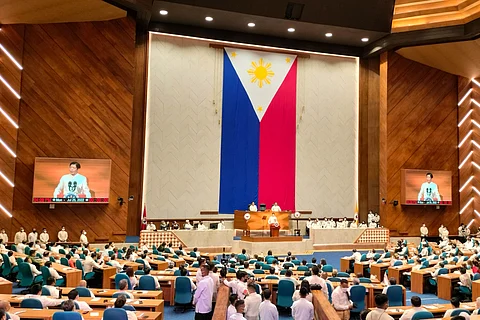
- NEWS
- the EDIT
- COMMENTARY
- BUSINESS
- LIFE
- SHOW
- ACTION
- GLOBAL GOALS
- SNAPS
- DYARYO TIRADA
- MORE

Every fourth Monday of July, the State of the Nation Address (SoNA) transforms the halls of Congress into a national stage — a spectacle of power, tradition and political theater. For decades, Filipinos have watched as presidents ascend to the podium to speak of plans and progress, shaping public perception and consolidating support.
This year’s SoNA, the fourth of President Ferdinand “Bongbong” Marcos Jr., arrives with a particular weight. It marks the midpoint of his term, a de facto referendum on promises made and the pace at which they’ve been kept.
Unlike previous SoNAs that overflowed with optimism, this year’s mood feels more tense. The rift between the Marcos and Duterte camps, once allies in a shared 2022 ticket, has widened. Irreparable, to say the least. This political fissure underlines the shifting alliances and competing ambitions that shape the second half of Marcos’ presidency.
Gone are the early days when Vice President Sara Duterte would attend the SoNA in full Mindanao regalia — a visual bridge between north and south, father and daughter, legacy and continuity. Now, with her stepping down from the education portfolio and publicly distancing herself from Malacañang, her presence, or rather, her absence, in today’s SoNA bears symbolic weight.
Senator Imee Marcos, the president’s sister, has become one of the administration’s loudest internal critics. Imee now echoes many of the talking points of the Duterte bloc, suggesting not just familial divergence, but a broader realignment of political allegiance.
It is against this backdrop that President Marcos Jr. delivers his latest report. His government touts legislative wins — capital market reforms, healthcare expansion and anti-agricultural smuggling laws. Yet critics point to uneven implementation, delayed infrastructure, and a persistent disconnect between Metro Manila policymaking and provincial realities.
What the SoNA has become, and what it reveals, is not just a summary of state action; it is also a reflection of the state’s priorities. It has now become a reflection of the moment: politically fractured, socially expectant and economically cautious. Filipinos, now familiar with grand promises, look not for flair, but follow-through.
